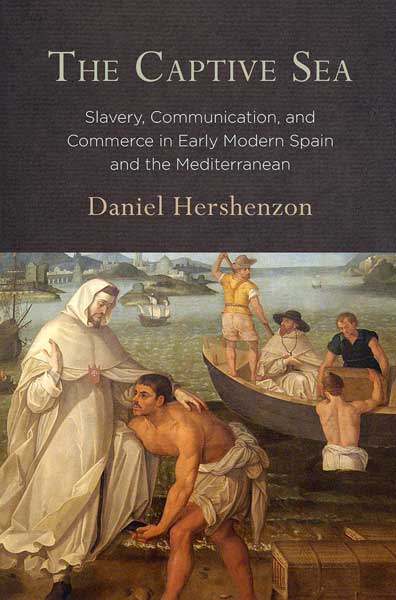

- This event has passed.
Captivated by the Mediterranean: Early Modern Spain and the Political Economy of Ransom
Los Angeles, CA 90095 United States + Google Map

CMRS Co-sponsored Lecture
In The Captive Sea, Daniel Hershenzon (University of Connecticut) explores the entangled histories of Muslim and Christian captives—and, by extension, of the Spanish Empire, Ottoman Algiers, and Morocco—in the seventeenth century to argue that piracy, captivity, and redemption helped shape the Mediterranean as an integrated region at the social, political, and economic levels. Despite their confessional differences, the lives of captives and captors alike were connected in a political economy of ransom and communication networks shaped by Spanish, Ottoman, and Moroccan rulers; ecclesiastic institutions; Jewish, Muslim, and Christian intermediaries; and the captives themselves, as well as their kin.
Hershenzon offers both a comprehensive analysis of competing projects for maritime dominance and a granular investigation of how individual lives were tragically upended by these agendas. He takes a close look at the tightly connected and ultimately failed attempts to ransom an Algerian Muslim girl sold into slavery in Livorno in 1608; the son of a Spanish marquis enslaved by pirates in Algiers and brought to Istanbul, where he converted to Islam; three Spanish Trinitarian friars detained in Algiers on the brink of their departure for Spain in the company of Christians they had redeemed; and a high-ranking Ottoman official from Alexandria, captured in 1613 by the Sicilian squadron of Spain.
Examining the circulation of bodies, currency, and information in the contested Mediterranean, Hershenzon concludes that the practice of ransoming captives, a procedure meant to separate Christians from Muslims, had the unintended consequence of tightly binding Iberia to the Maghrib.
Professor Hershenzon’s research focuses on the history of early modern Spain and the Mediterranean, the relations between the Spanish Monarchy and North Africa, slavery and captivity, cultural intermediaries, conversion, and writing and its uses. More particularly, I examine three inter-related themes: (1) maritime networks formed by corsairs, captive-redeemers, spies, renegades and merchants and the links they formed between Spain and the Maghrib, (2) the political attempts of the rulers of Spain, Algiers and Morocco to shape Mediterranean structures of mobility, and (3) the commerce and circulation of books and libraries, relics and religious images, animals and “exotic” objects across the Mediterranean.
Organized by the UCLA Department of History.
